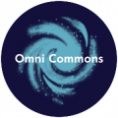“The city is not a concrete jungle, it’s a human zoo.”
Desmond Morris, The Human Zoo.
Soaking up the sunshine this weekend, I perched with a friend on the steps of Union Square. Nearby, a group of attractive young white kids with brightly colored hair spun poi and hula-hooped in fashionable earthy garb, crafting a performative stage at the foot of the steps where dozens of people sat. I watched and wondered, as I always do, at the seemingly innate enjoyment of judging gazes, small envies, unsubtle desires, attentive eyes consuming their brightly colored shimmying hips and tanned, fluid limbs. I’m at a loss for how to go about reclaiming a lifestyle co-opted by childish style tribes, recuperated and sold back in the tone of the “underground.” But as Kurt Vonnegut says, so it goes…
A man holding a sign ranted loudly about the perils of nanotechnology, drawing a small cluster of avid listeners. My friend attended to her Seed Magazine, which highlighted the contemporary debate on the issue. She commented on the young man giving out free hugs while simultaneously strutting about in a shirt emblazoned with the words “made of poison.”
I casually struck up a conversation with the man chillin’ to my left, complimenting the intricate detail of the colorful psychedelic prints splayed out around him. Averting his eyes, he described his process as one of “adding to” pre-existing images – at this, I raised an eyebrow and smirked at the psychedelic elephant in my hands. Smoothly, he then pulled out a translucent pair of prints and moved them slowly across one another, blurring and goo-ifying a gigantic block print of the year 2012. Wince.
Gradually, we inserted ourselves into another nearby spectacle that had drawn a dense crowd- two lithe black men dressed in bright, skin-tight animal print bodysuits engaged in a wildly contortionist dance, bizarre twistings of bodily form. For their grand finale, one leapt effortlessly over the heads of half a dozen “volunteers.” Throughout, they called for the audience to give money for their endeavors, and at the end passed three large buckets around. Embarrassed, I avoided the buckets, reaching a hand into my pocket to ensure my four dollar bills were still milling about.
The area where I run at the Chelsea Piers has finally finished construction (or at least a substantial portion of it), and is now allowing people to meander along the shiny new walkways accented by bright green grass and surrounded by trees and water. It is beautiful!
Tonight, I rambled to the corner market for a beer. It was around midnight, and I found myself gazing in at the bars closing down. Bartenders, cooks and barbacks gathered in small pockets just beyond accessibility, cocooned in the inner glow of afterhours. There was a sense of belonging in these fractured glances, and in the smooth strides of a man who zipped down 19th street on rollerblades while chatting with his bluetooth’d self Each of these sightings registered a pang of longing that sung through my heart.
(I recalled, as I often do, a memory of a rainstorm at dawn several years ago, my green bedroom syrupy and sunlit and full of friends sprawled out on mattresses and in chairs, long bouts of listening interspersed with sleepy jokes and lazy laughter. Joe had set up a feedback contraption that captured the sounds of the falling rain and catapulted them back into the room. Drenched in sound and in the love of adopted family close at hand, I remember falling asleep with the acute sense that I had come full circle back to my childhood, to the warmth of s’more-infused campfires and sunday night baths with my siblings.)
Then I remembered that sunlit day, which proceeded into an evening of laughter, ranting, and friendly camaraderie with a friend I’d never gotten to know well one-on-one. There was a point where I found myself persuading her to look at San Diego, to come and make a community of smart, down-to-earth compadres. It occurred to me just how necessary such dreams had become, lost in the sea of anomie that is new york city.
This was all only ever temporary, a sacrifice for love. Never inclined toward urban environments, I resolved not to become too attached to this city – just as I’d resolved, 5 years ago, not to fall in love during the year I was abroad in Denmark.
That pact failed back then – of course during the last two months of my stay, with nothing to stand in the way of letting go – I fell in love with a Danish boy destined for the Danish military life, just as I was destined for the American collegiate life. I’ve no regrets. How could I?
And so I’ve no regrets for my renewed mission: to love this porous city for all its flaws and elegant superstructure, to capture this life so rich with culture and madness, and finally to know what it means to escape the zoo of my own accord.




